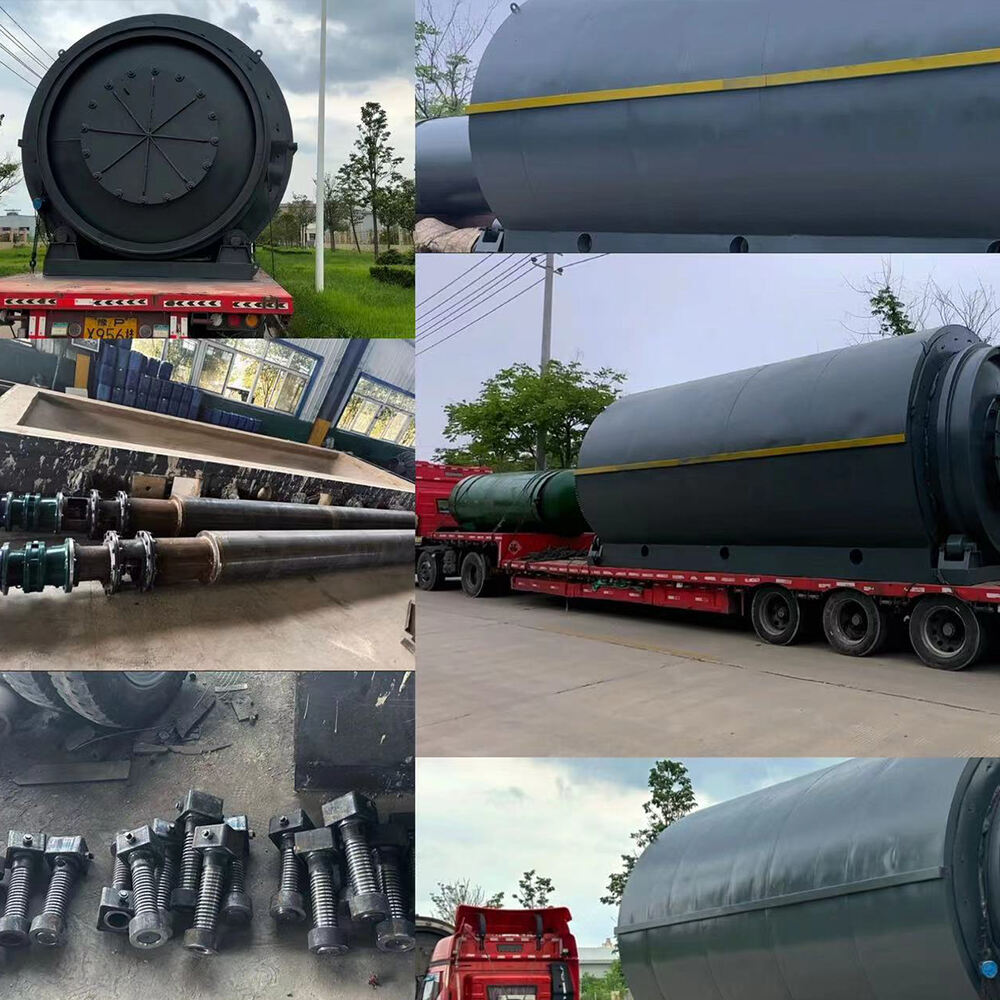Introduction to High Yield Continuous Cracking Distillers
High yield continuous cracking distillers represent cutting edge equipment that has become indispensable in modern crude oil refineries. These systems work by breaking down complex hydrocarbon chains into smaller, more usable molecules via thermal cracking processes. The result? Refineries get better yields from their raw materials while operating at higher efficiencies than traditional methods allowed. Beyond just processing crude oil though, these distillers help turn what would otherwise be waste products back into marketable fuels and petrochemicals. Many refineries report significant cost savings after implementing this technology, making it a game changer for both economic viability and resource optimization in the petroleum industry.
How these distillers work is based on some pretty important science stuff, mainly thermal and catalytic cracking methods. Thermal cracking basically means heating things up so much that big hydrocarbon molecules start breaking apart. Catalytic cracking works differently though it uses special substances called catalysts which let the same reactions happen at lower temps and with less energy overall. The combination of these two approaches really boosts what we can get out of crude oil and similar feedstocks. Most refineries find this approach gives them good results in terms of production volume, plus it helps cut down on energy costs over time. Of course there are always tradeoffs depending on specific conditions at each facility.
Continuous cracking distillers do much more than just refine crude oil. These systems play a key role across various industries, especially when it comes to recycling used oils and turning all sorts of waste material back into something useful again. Their ability to handle different feedstocks makes them pretty essential for companies trying to cut down on environmental damage while making better use of available resources. When manufacturers start adopting this kind of technology, they actually make a real difference in cutting down on industrial waste. Plus, it helps move things toward that circular economy model where nothing goes to waste, which is good news for the environment overall.
Advantages of High Yield Continuous Cracking Distillers
Continuous cracking distillers with high yields boost production efficiency because they squeeze more value out of raw materials than traditional methods. These systems run non-stop most of the time, which means factories get more product off the line while avoiding those costly shutdown periods. What really sets them apart are the automated controls that let operators process bigger batches of crude oil at once. This leads to better transformation rates when turning heavy oils into marketable products such as gas, diesel fuel, and kerosene. For refineries trying to keep up with increasing market needs, this kind of steady output makes all the difference in managing resources smartly and staying competitive in today's tight energy markets.
High yield continuous cracking distillers tend to save money in the long run because they use less energy and create less waste compared to traditional methods. Many modern systems come equipped with built-in heat recovery components that capture excess thermal energy during operation and put it back into the process, which cuts down on power bills substantially. For manufacturers running multiple shifts per day, this can translate into real savings on both initial installation costs and daily running expenses. Plus, these systems generally require less frequent maintenance checks and fewer workers to operate efficiently, which makes sense for companies dealing with large volumes of material processing needs across different sectors.
When industries start using high yield continuous cracking tech, they usually see their money back pretty quickly. Take a look at what happens when plants implement modern catalyst systems along with precise temperature management. The end result? Better product quality across the board plus easier adherence to those tough environmental regulations everyone's talking about nowadays. Many refineries have actually reported producing fuel that contains significantly less sulfur content, which keeps them within legal limits set by governments around the world. Investing in this kind of equipment pays off financially for businesses, but there's another bonus too environmental sustainability becomes part of the equation. So companies get both wallet-friendly returns and feel good about doing something positive for the planet at the same time.
How High Yield Continuous Cracking Distillers Improve Industrial Productivity
The high yield continuous cracking distillers are changing how industries operate because they run without stopping, which means products keep flowing through the system without interruption. Traditional batch methods need constant stopping and starting, but these new systems just keep going, so there's no wasted time waiting between batches. The result? Much better output numbers over the same period. For chemical plants and refineries where distillation is part of daily operations, this kind of continuous operation makes all the difference. Companies report seeing real gains in production capacity simply by switching from old batch systems to these newer continuous models.
Getting energy efficiency right matters a lot when it comes to making high yield continuous cracking distillers sustainable over the long term. Modern systems incorporate various energy saving features that actually bring down power usage quite substantially compared to older models. When these distillers have good heating and cooling systems built in, they save money on electricity bills while keeping temperatures just where they need to be during processing. Precise temperature management turns out to be really important because it helps separate out the right materials from the mix, which means less waste overall and better quality products at the end of the line. Companies investing in these kinds of improvements find themselves hitting two birds with one stone they stay productive while ticking boxes on their environmental responsibility reports too.
A lot of businesses that switched to high yield continuous cracking distillers noticed real boosts in how much they produce. Take some manufacturing plants for example, they've been seeing higher output numbers along with big reductions in what they spend on power bills. What makes these systems so useful is their flexibility. When markets shift around, companies can tweak settings without compromising product quality even when using different raw materials. Investing in this kind of tech means better day to day operations for sure, but it also helps firms stay ahead of competitors who haven't made similar upgrades yet.
Environmental Contributions of High Yield Continuous Cracking Distillers
Continuous cracking distillers that produce high yields are making a real difference when it comes to cutting down emissions compared with old school oil refining techniques. What sets these modern systems apart is their ability to cut back on VOCs and various other pollution sources because they run at just the right temps and pressure levels for maximum effectiveness. The result? A much more thorough processing of the raw stuff going into them. And beyond simply reducing bad stuff in the air, companies find that these efficient operations actually help them stay compliant with all those tough environmental rules that keep getting stricter every year.
High yield continuous cracking distillers are becoming increasingly important for circular economy initiatives across manufacturing sectors. These advanced systems essentially extract maximum value from industrial waste streams, transforming what would otherwise be discarded material into useful byproducts that can be reintegrated into production processes. What makes them so effective is their ability to recover materials that many companies might overlook or send straight to landfill sites. When facilities implement this technology, they see real reductions in both raw material consumption and overall waste volumes going into disposal facilities. From an environmental standpoint, this creates a much tighter feedback loop in industrial operations while also cutting down on carbon footprints associated with traditional waste management practices.
The numbers tell us something interesting about carbon footprints when we look at these technologies. Take heat recovery systems as an example. When companies install them, they basically capture all that wasted heat from their processes and put it back into work. The result? Big cuts in energy bills and significantly smaller carbon emissions. Industries that want to go green are finding these distillers absolutely essential as they try to switch over to greener ways of manufacturing stuff. Companies aren't just saving money on their bottom line, they're actually helping the planet while doing so.
Key Products in Continuous Cracking Technology
Continuous cracking technology has revolutionized waste management and resource recovery, introducing high-grade equipment that supports eco-friendly operations. Let's explore some key products in this field.
The 50 Ton fully continuous automatic waste oil sludge thermal cracking pyrolysis plant provides solid options for handling waste oil sludge problems, turning it into useful materials while keeping emissions low. What makes this equipment stand out is how well it processes material, scales up when needed, and actually transforms what would otherwise be waste into products that have real market value. Many industries find these plants particularly attractive because they not only solve disposal issues but also create revenue streams from what was once considered just trash.
For manufacturing industries, the Fully Continuous New Waste Tyre Thermal Cracking Plant excels in converting waste tires into black diesel efficiently. This plant employs advanced thermal cracking processes to maximize the recovery of energy-rich by-products from waste tires, positioning it as a leader in sustainable tire waste management.
The Semi-Continuous Waste Tire Rubber Thermal Cracking Recycling Plant offers flexibility and scalability, making it suitable for a range of industrial applications. Its semi-continuous operation allows for manageable processing times, adapting to varying input volumes without compromising on efficiency or output quality.
Lastly, the Continuous Pyrolysis Plant with Innovative Recycling Complex stands out for its integrated recycling processes, ensuring zero waste production. This state-of-the-art facility underscores the industryâs move towards comprehensive sustainable operations, leveraging continuous processing for enhanced environmental gains.
Challenges and Future Trends in Continuous Cracking Distillation
The continuous cracking distillation sector really struggles with keeping quality standards up while staying flexible enough for different raw materials. When all sorts of feedstocks get fed into these systems, it gets pretty tough to keep product quality steady across the board. The problem is that input materials vary so much from batch to batch, which causes ups and downs in what comes out the other end. That's why most plants have had to invest in better monitoring systems and smarter control technologies just to maintain some level of consistency throughout their distillation operations. Some facilities report spending extra on sensors and automation simply because they need those real time adjustments when things start going off track.
New tech developments are starting to transform how high-yield continuous cracking distillers operate, making them both more efficient and environmentally friendly. Researchers are looking into things like smart automation setups, instant data processing tools, and machine learning algorithms that optimize production flows. Some companies have already started implementing these changes with promising results. The main goal here is straightforward: cut down on running expenses without sacrificing output quality. At the same time, manufacturers want to boost their overall product yield while keeping emissions low. Several pilot projects show that plants adopting these innovations typically see cost reductions of around 15% within the first year of operation.
Most folks in the industry think the next big thing for continuous cracking distillation is going to be all about getting those automated systems running smoother and integrating better control tech into existing setups. With companies pushing harder than ever for efficiency gains, we're seeing more plants invest in things like machine learning algorithms and Internet of Things sensors across their facilities. What makes these new technologies worth the investment? They cut down on waste during production while making sure every batch comes out just right. Some early adopters report cutting energy costs by double digits already. And let's face it, when operators can monitor everything from their phones and catch issues before they become disasters, that's what keeps businesses competitive in today's market.
Conclusion: The Future of High Yield Continuous Cracking Distillers
Continuous cracking processes have become essential across many industries today, helping boost production rates while fitting into green manufacturing goals. These methods cut down on wasted materials and lower carbon footprints, showing how tech improvements really matter for companies wanting to go green. When manufacturers look to run operations smarter and cleaner, investing in high output continuous cracking systems makes good sense. Companies that install these kinds of equipment see real gains in how they manage resources day to day. Plus, this kind of upgrade puts them ahead of competitors who haven't made similar investments yet, especially as customers increasingly care about where products come from and how they affect the planet.


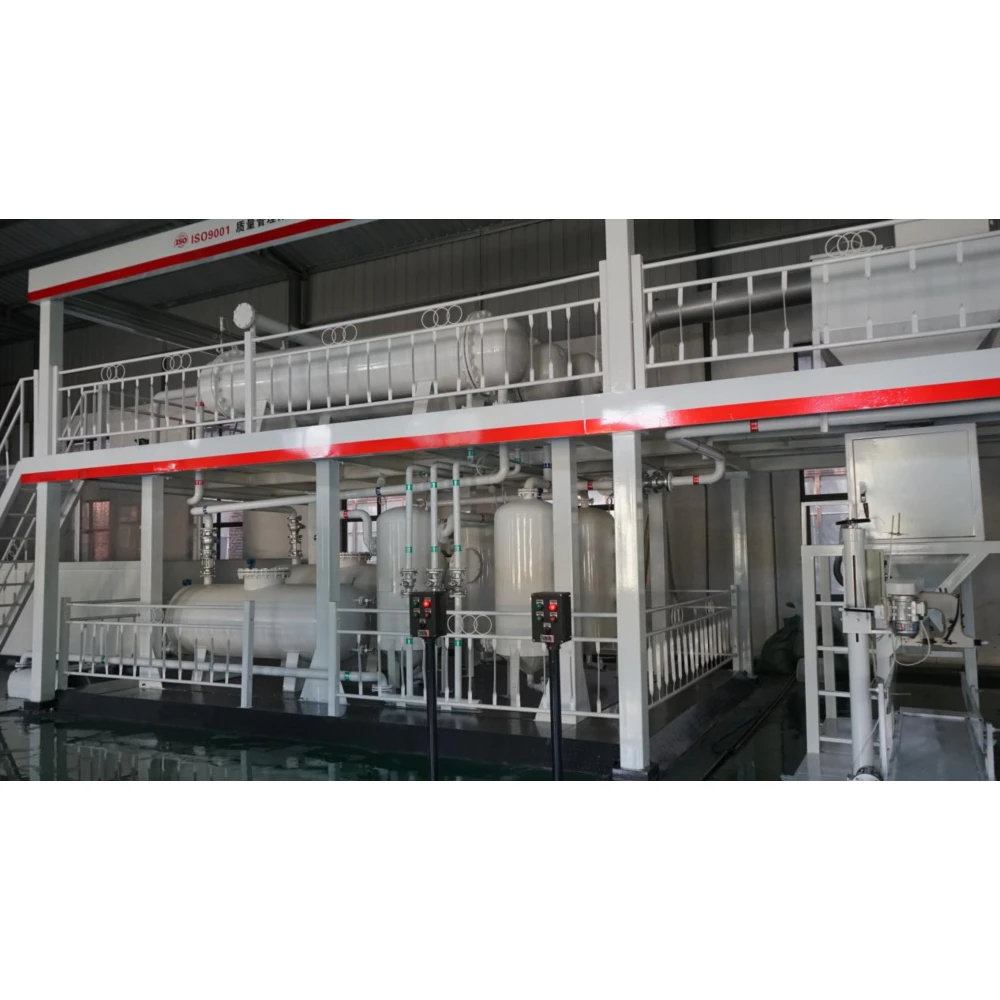
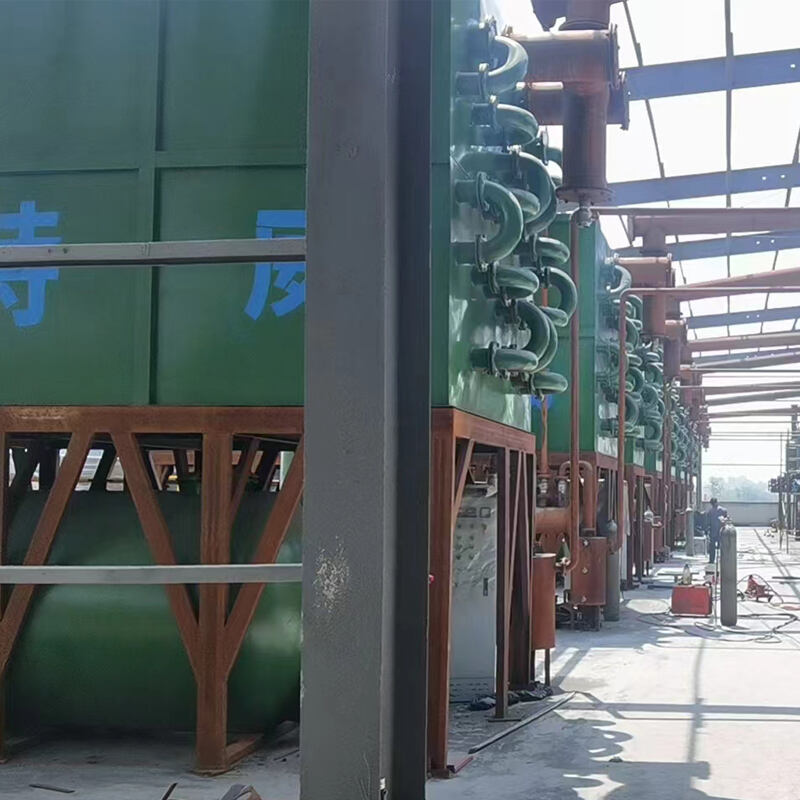
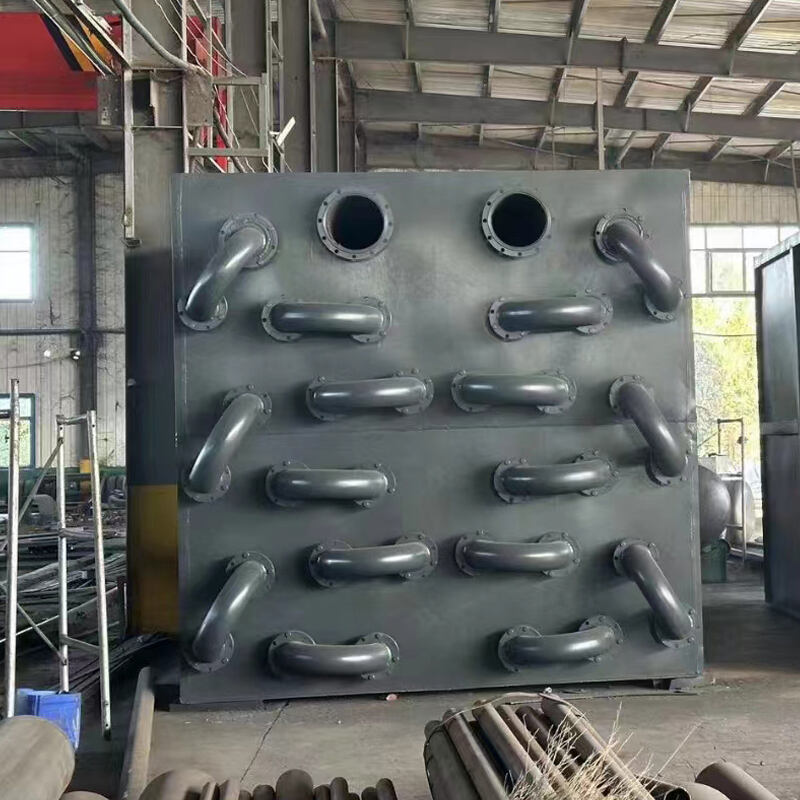
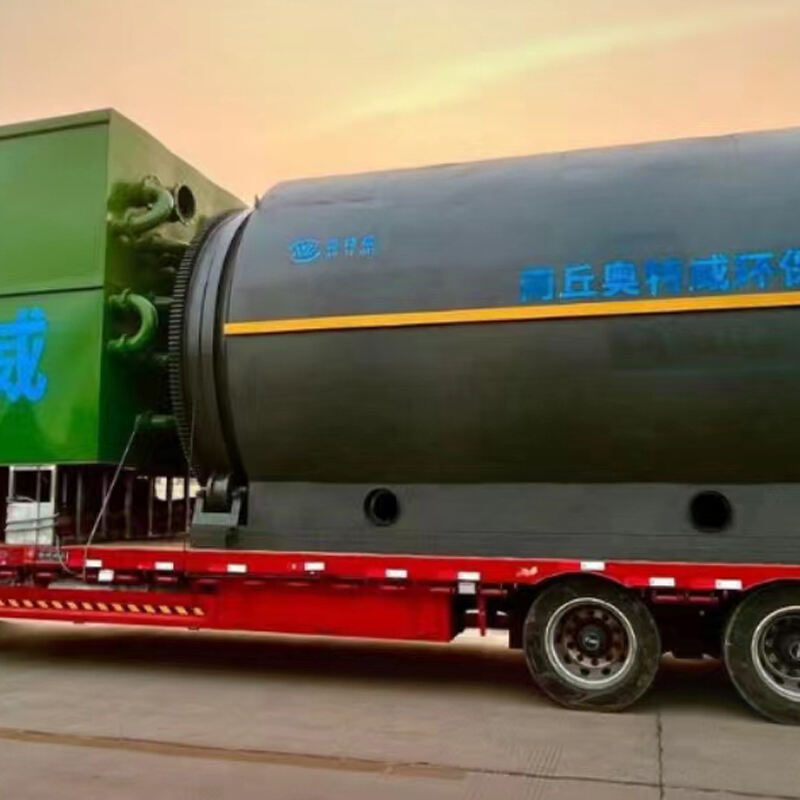
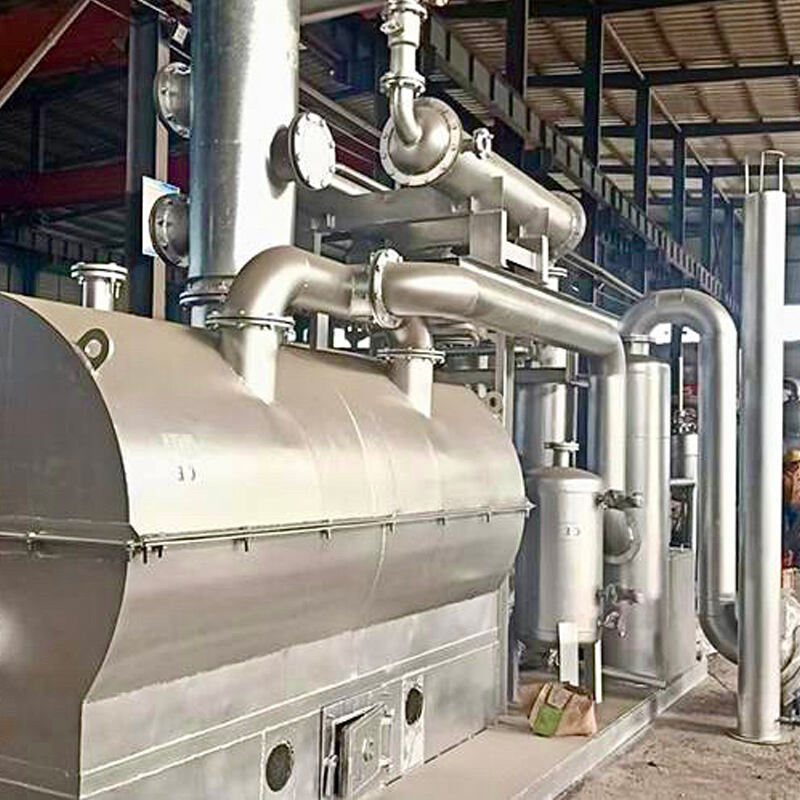
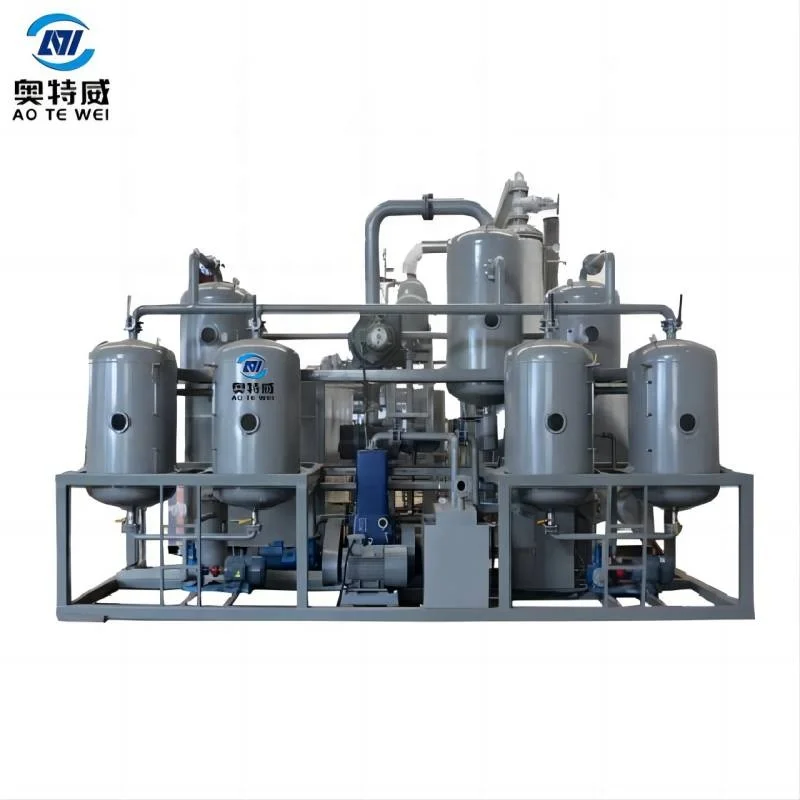
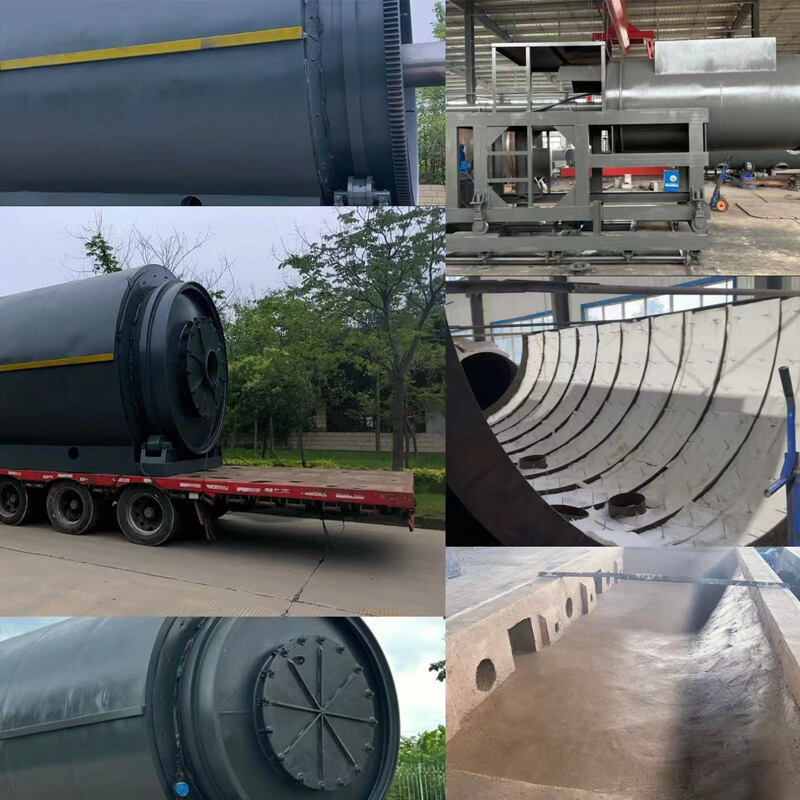

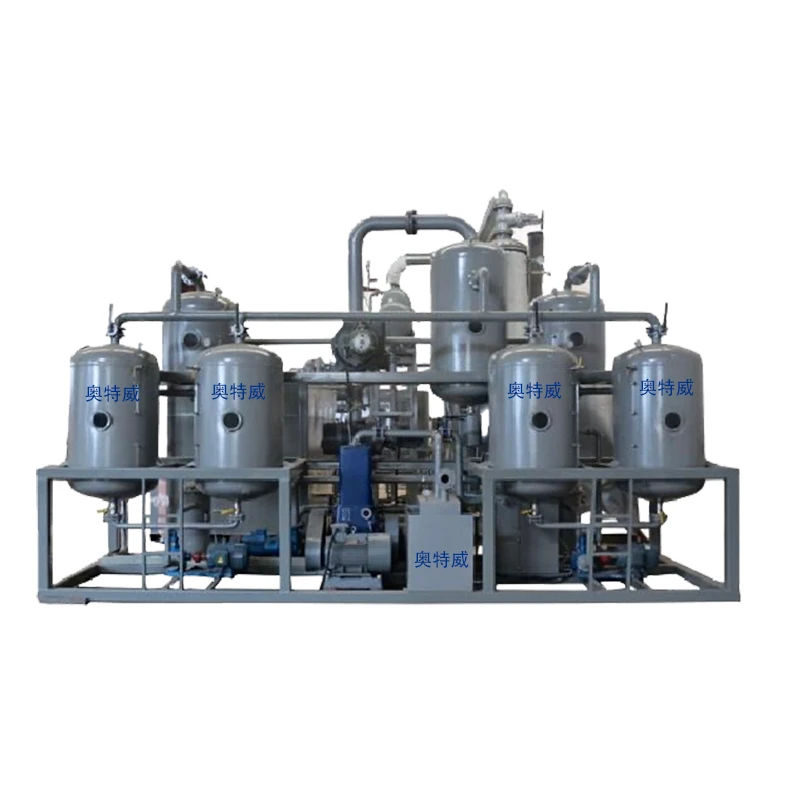
 Hot News
Hot News